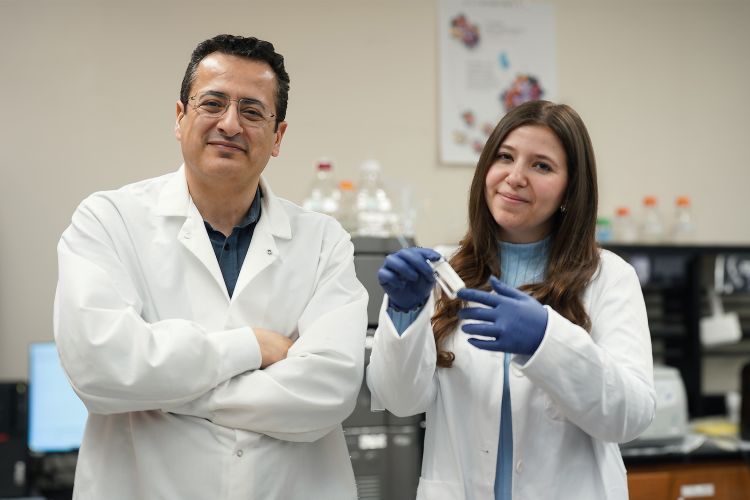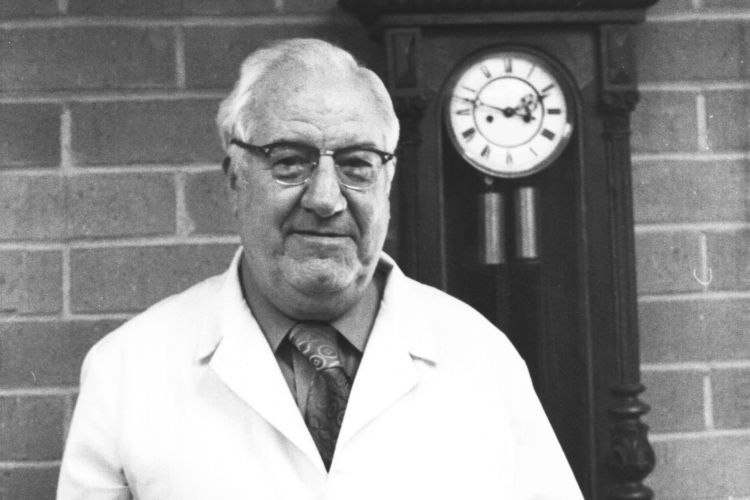Breadcrumb
Fellowship in partnership with BeiGene showcases non-traditional career paths for pharmacists
The latest addition to the Thomas J. Long School of Pharmacy’s portfolio of fellowships is a partnership with BeiGene, a global biotechnology company dedicated to developing innovative oncology treatments. The two-year fellowship was designed to give a doctor of pharmacy (PharmD) graduate exceptional training in clinical development within the hematology-oncology space and is led by two alumni, Sheel Patel ’16, ’19, PharmD and Andy Szeto ’18, PharmD.
Having completed pharmaceutical industry fellowships themselves, Drs. Patel and Szeto are well-positioned to serve as relatable and effective program mentors.
“Our goal is to help the fellow gain a strong foundation in clinical research and develop an understanding of the entire clinical development process,” said Dr. Patel.
“We have some ‘insider knowledge’ of how to curate the best learning experience for incoming fellows,” adds Dr. Szeto.
The fellowship at BeiGene trains a PharmD graduate to become a clinical scientist, a non-traditional pharmacy career path which allows them to leverage their clinical training while advocating for a patient-centered approach throughout the biopharmaceutical research and development process. Clinical scientists can often serve as the leader of a clinical study team, which includes individuals specializing in operations, statistics, data management, and regulatory science. Pharmacists are trained in various clinical therapeutics, molecular mechanisms of action, side effects and drug-to-drug interactions; through the role of a clinical scientist, they can serve as a clinical point-person while shepherding the clinical trial to success.

BeiGene’s philosophy that “cancer has no borders, neither do we” manifests in their approach to clinical development. From the outset, clinical trials are designed to align with regulations and guidelines as set forth by key health authorities such as the European Medicines Agency and U.S. Food and Drug Administration, paving the way for approval in multiple international markets, including regions with limited access to innovative oncology treatments. Learning to design clinical trials using this forward-thinking approach is a marketable skill.
“Fellows can lead and design the clinical trials which ensure that a new drug is safe and efficacious, obtaining the data required for regulatory approval around the world,” Dr. Szeto explains.
Dr. Patel encourages PharmD students interested in the pharmaceutical industry to “go soul searching.” He adds, “The sooner you know what you want to do, the sooner you can start researching, whether that means reaching out to the internal medicine preceptors in a hospital or current fellows in a specific functional area.”

Program mentors Sheel Patel ’16, ’19, PharmD and Andy Szeto ’18, PharmD
Speaking from personal experience, they recommend exploring Pacific’s chapter of the Industry Pharmacists Organization (IPhO) and connecting with the Innovative Clinical and Outcomes Research (iCOR) team.
Through IPhO, students can network with industry professionals, learn from speaker panels and participate in unique industry-focused workshops. IPhO also hosts Pharmathon, an annual event where students have 48 hours to design an innovative product which is then presented to a panel of judges.
At Pacific, students can work alongside faculty designing and executing cutting-edge clinical trials. Trailblazers in the medical device and dietary supplement space, the iCOR team has received international attention for their research on energy drinks. For the past three years, all PharmD students who were a part of the iCOR team were able to obtain a fellowship position and iCOR has propelled graduates into rewarding careers in the pharmaceutical industry.





